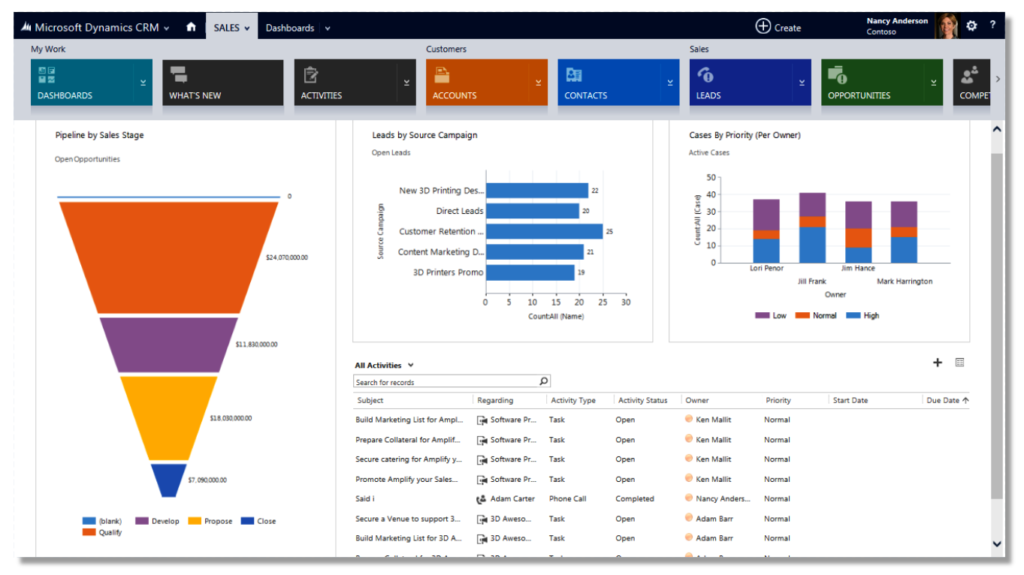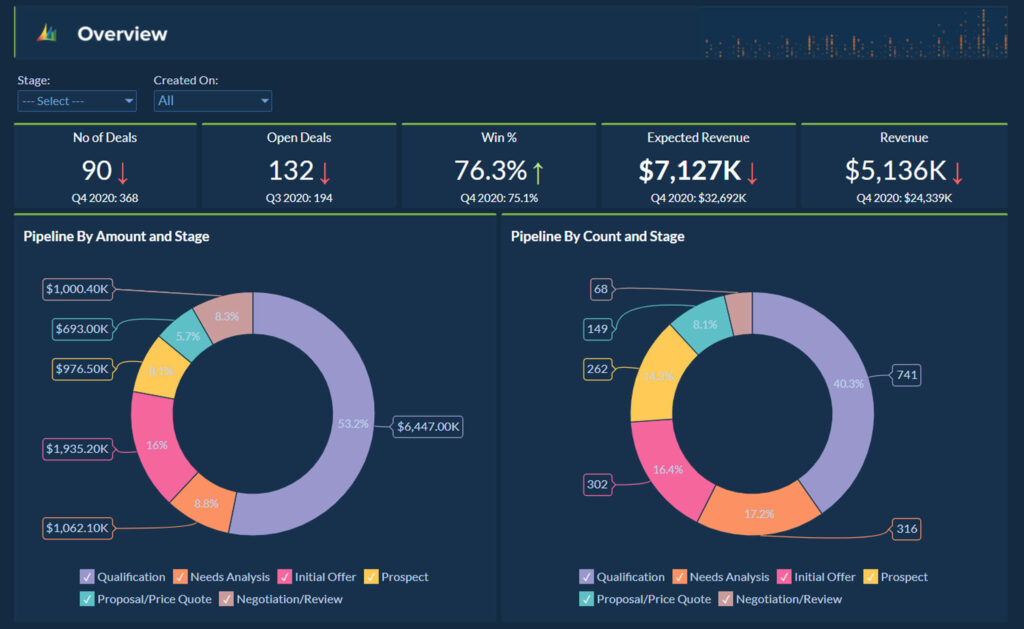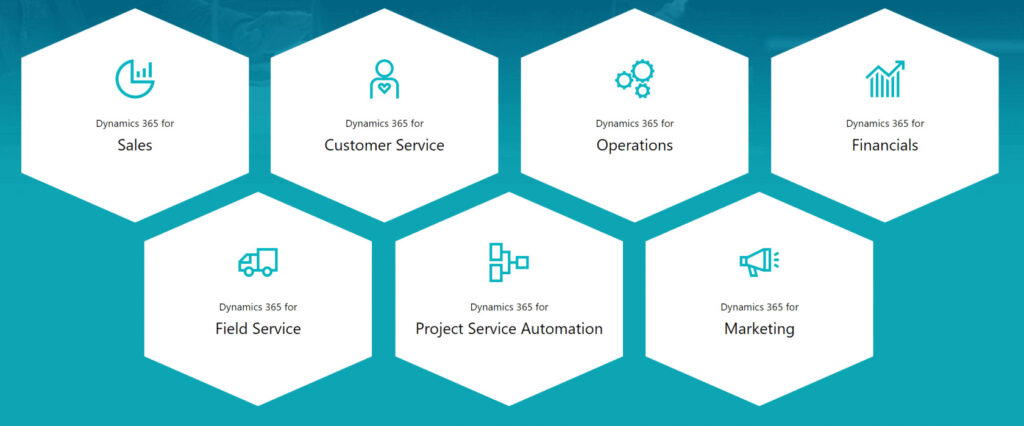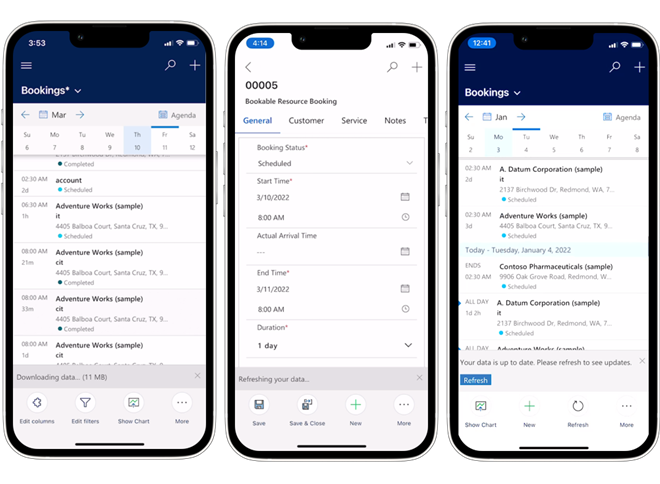Microsoft CRM|Microsoft Dynamics|Microsoft Dynamics CRM
Microsoft Dynamics
Title: Microsoft CRM: Transforming Customer Relationships
Introduction
In today’s fast-paced and competitive business landscape, maintaining strong customer relationships is paramount to success. To effectively manage these relationships, businesses turn to Customer Relationship Management (CRM) software solutions. One of the most prominent players in the CRM market is Microsoft Dynamics 365 CRM. This article explores the features and benefits of Microsoft CRM, illustrating how it can revolutionize the way organizations interact with their customers.
What is Microsoft CRM?
Microsoft CRM, officially known as Microsoft Dynamics 365 Customer Engagement, is a comprehensive CRM software solution offered by Microsoft. It is designed to help businesses of all sizes manage customer data, automate sales and marketing processes, and provide a 360-degree view of customer interactions. Microsoft CRM enables organizations to streamline their customer engagement efforts, ultimately improving customer satisfaction and driving growth.


Key Features of Microsoft CRM:
1.Customer Data Management: Microsoft CRM centralizes customer information, making it easy for sales and service teams to access a complete profile of each customer. This enables better decision-making and more personalized interactions.
2.Sales Automation: The CRM system provides tools for managing sales leads, opportunities, and forecasts. Sales teams can track their progress, set goals, and automate routine tasks, freeing up more time for strategic sales activities.
3.Marketing Automation: Microsoft CRM allows businesses to create and execute marketing campaigns, track their effectiveness, and nurture leads into customers. This helps in targeting the right audience and improving marketing ROI.
4.Customer Service: The CRM includes customer service capabilities, helping organizations manage and resolve customer issues efficiently. Features like case management, knowledge base, and service analytics enhance the customer support process.
5.Business Intelligence: Microsoft CRM incorporates powerful analytics and reporting tools, enabling organizations to gain insights from their data and make data-driven decisions.
6.Integration: The software seamlessly integrates with other Microsoft products like Office 365 and Azure, as well as a wide range of third-party applications, enhancing productivity and collaboration.


Benefits of Microsoft CRM:
1.Enhanced Customer Engagement: Microsoft CRM helps organizations build strong customer relationships through a unified view of customer data, enabling more personalized interactions.
2.Improved Sales Performance: By automating sales processes and providing data-driven insights, Microsoft CRM empowers sales teams to close deals more efficiently and achieve higher conversion rates.
3.Effective Marketing Campaigns: With marketing automation, businesses can create targeted campaigns and measure their success, resulting in better lead generation and conversion rates.
4.Streamlined Customer Service: The CRM’s customer service capabilities ensure that customer issues are resolved quickly and efficiently, leading to higher customer satisfaction and loyalty.
5.Scalability: Microsoft CRM is suitable for businesses of all sizes. It can grow with your organization and adapt to evolving needs.
6.Data Security: Microsoft takes data security seriously, ensuring that customer information is protected from unauthorized access or breaches.

1.Mobile Accessibility: Microsoft CRM offers mobile apps for iOS and Android, enabling your sales and service teams to stay connected and productive while on the go. This ensures that critical customer information is accessible in real-time, improving responsiveness and customer service.
2.Customization and Flexibility: Microsoft CRM allows businesses to tailor the system to their specific needs. You can create custom fields, forms, and workflows to match your unique business processes, making it a flexible solution for a wide range of industries.
3.Data Insights: The CRM’s built-in analytics and reporting tools help businesses make sense of their data. You can track key performance metrics, monitor sales trends, and gain a deeper understanding of customer behaviors, enabling better decision-making and strategy development.
4.Artificial Intelligence (AI): Microsoft CRM leverages AI capabilities to provide predictive analytics, suggesting next-best actions for your sales and service teams. This can lead to more informed decision-making and improved customer interactions.
5.Seamless Collaboration: Integration with Microsoft’s productivity suite, Office 365, allows for seamless collaboration and communication within your organization. Your teams can easily share documents, calendars, and communicate via Microsoft Teams, enhancing efficiency and teamwork.
6.Automation of Routine Tasks: Microsoft CRM includes workflow automation that can help reduce manual data entry and repetitive tasks. This not only saves time but also reduces the risk of errors, ensuring data accuracy.
7.Customer Self-Service: The CRM provides options for self-service portals, enabling customers to find answers to their queries and access relevant information, reducing the workload on your customer service team.
8.Third-Party App Ecosystem: Microsoft CRM integrates with a vast ecosystem of third-party applications through the Microsoft AppSource marketplace. This allows you to extend its functionality to meet specific business requirements.
9.Training and Support: Microsoft offers comprehensive training and support resources for users and administrators, including documentation, webinars, and a user community to help you get the most out of the CRM.
Certainly, let’s delve deeper into some specific scenarios and use cases where Microsoft CRM can be a game-changer for businesses:
1.Sales Management: Microsoft CRM empowers sales teams with a holistic view of customer data. With this information at their fingertips, sales professionals can identify opportunities, track interactions, and forecast sales with greater accuracy. Additionally, the system can automate routine tasks like lead assignment, follow-up reminders, and document generation, allowing the sales team to focus on building relationships and closing deals.
2.Marketing Campaigns: The marketing automation capabilities of Microsoft CRM enable businesses to create and execute targeted campaigns. By segmenting customers based on their preferences and behavior, you can send personalized content, which leads to higher engagement and conversion rates. The system also provides analytics to assess the effectiveness of your marketing efforts, helping you refine your strategies.
3.Customer Service Excellence: The CRM’s customer service module assists in managing and resolving customer issues efficiently. It supports case tracking, knowledge base creation, and service analytics. Customer service representatives can access relevant information quickly, enabling them to provide more prompt and accurate solutions, ultimately resulting in improved customer satisfaction and loyalty.
4.Customer Insights: Microsoft CRM’s analytics and reporting tools help you gain valuable insights into your customer base. It enables you to identify trends, preferences, and opportunities that you might have otherwise missed. These insights can inform product development, marketing strategies, and customer engagement initiatives.
5. 360-Degree Customer View: A crucial aspect of Microsoft CRM is providing a 360-degree view of customer interactions. This holistic perspective allows your teams to see not just current data but also historical interactions, preferences, and purchase history, enabling more personalized and informed conversations.
6. Artificial Intelligence: Microsoft CRM incorporates AI capabilities for predictive analytics and suggestions. By analyzing customer data, the system can recommend next best actions, helping your teams make decisions that are more likely to lead to successful outcomes.
7. Customization and Integration: The flexibility of Microsoft CRM allows businesses to customize the system to match their unique processes and workflows. Moreover, its integration with other Microsoft products and third-party applications makes it a central hub for managing business operations.
8. Scalability and Growth: As your business grows, Microsoft CRM can scale with you. You can add more users, extend functionalities, and adapt to changing needs, ensuring that your CRM system remains aligned with your evolving business goals.
Conclusion
Microsoft CRM, with its wide array of features and integration capabilities, can significantly transform the way organizations manage customer relationships. By centralizing customer data, automating sales and marketing processes, and providing valuable insights, it empowers businesses to improve customer engagement, drive growth, and stay competitive in today’s market. If you’re looking to take your customer relationships to the next level, Microsoft CRM is a powerful tool to consider.
Microsoft CRM, as part of the Dynamics 365 suite, offers a robust and flexible solution for businesses looking to manage customer relationships more effectively. Its comprehensive feature set, integration capabilities, and scalability make it an attractive option for businesses of all sizes and industries. By implementing Microsoft CRM, organizations can centralize customer data, streamline sales and marketing processes, enhance customer service, and gain valuable insights, ultimately leading to increased customer satisfaction and business growth.
As the business world continues to evolve, having a powerful CRM system like Microsoft Dynamics 365 CRM can be a strategic advantage. It not only helps organizations stay competitive but also allows them to adapt and thrive in an ever-changing marketplace, where strong customer relationships are the key to success.
In conclusion, Microsoft CRM is a versatile and powerful tool that can revolutionize the way organizations interact with their customers. It is not just a software solution but a strategic asset that can elevate your customer relationship management to new heights. By centralizing customer data, streamlining processes, and providing insights, it enables businesses to build stronger customer relationships, drive growth, and stay competitive in today’s dynamic market. Whether you are a small business looking to enhance customer engagement or a large enterprise aiming to optimize sales and service operations, Microsoft CRM is a solution worth considering for long-term success.

